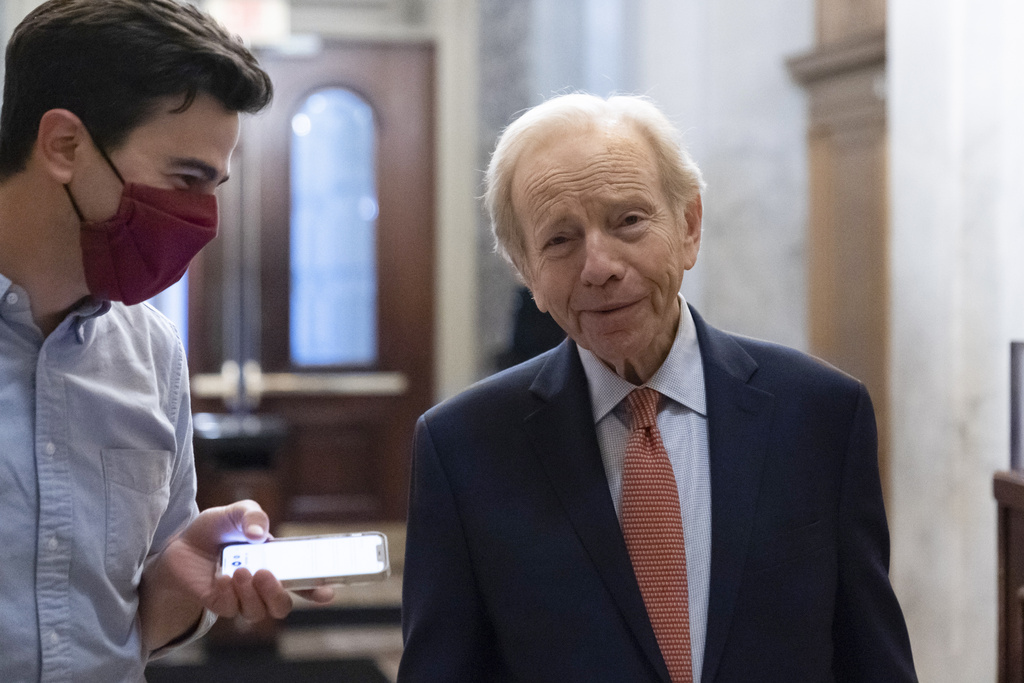

Joe Lieberman, who died Wednesday at 82, came within one Sarah Palin of being vice presidential nominee of both major parties in under a decade.
Al Gore selected the Connecticut senator to be his running mate in 2000. Republicans mocked the ticket as “Sore Loserman” during the subsequent fight over Florida’s hanging chads. But John McCain also considered Lieberman after winning the GOP nomination in 2008 and might have pulled the trigger if he had sufficient standing among social conservatives to weather an abortion-rights veep partner.
By then, Lieberman had waged an unsuccessful campaign for the 2004 Democratic presidential nomination and fell to an antiwar primary challenger while seeking renomination to his seat two years later. Lieberman was reelected as an independent in a three-way race. He continued to caucus with Senate Democrats but endorsed McCain for president in 2008.
“Influential McCain backers, plus McCain himself, would pick the pro-choice liberal from Connecticut if they thought they could get away with it,” veteran conservative journalist Robert Novak reported in one of his final columns. “But they can’t get away with it — and this has been made clear to McCain by none other than Joe Lieberman himself.”
One Republican operative suggested that Lieberman would make a better secretary of state for McCain.
“I completely trusted, liked and worked well with Joe,” McCain wrote in his memoir The Restless Wave a decade later. “And I still believe, whatever the effect it would have had in some quarters of the party, that a McCain-Lieberman ticket would have been received by most Americans as a genuine effort to pull the country together for a change.”
But the episode illustrated Lieberman’s unusual place on the political spectrum. A mostly liberal Democrat who was endorsed by conservative columnist and National Review founder William F. Buckley Jr. against an even more liberal Republican — those still existed at the time, too — when first elected to the Senate in 1988, Lieberman became a polarizing figure in his own party.
Lieberman effectively doomed the Republican effort to impeach Bill Clinton when he criticized the president’s conduct but said it did not warrant Clinton’s removal from office. He went on to join the Democratic ticket in the closest presidential election in U.S. history. But he remained steadfast in his support for the Iraq War long after most Democrats — half of the party’s senators voted to authorize the war, including Joe Biden, Hillary Clinton, Chuck Schumer, and John Kerry — and a majority of voters had abandoned it.
This cost him the Democratic nomination for Senate in 2006, although he prevailed in the general election. Lieberman instead palled around with hawks on the other side of the aisle, joining McCain and Sen. Lindsey Graham (R-SC) to fill out the “Three Amigos.” Graham signed his tribute to Lieberman “the Last Amigo.”
Lieberman’s Democratic Party also gradually moved away from him on Israel, as both the current president and the Senate majority leader recently buckled under progressive pressure on the war in Gaza. Lieberman rebuked Schumer in a Wall Street Journal piece just this month.
“While Mr. Schumer’s statement undoubtedly pleased American critics of Israel,” Lieberman wrote of the New York Democrat’s call for replacing Israeli Prime Minister Benjamin Netanyahu, “for the Israelis it was meaningless, gratuitous and offensive.”
“Mr. Schumer has a record of supporting Israel,” Lieberman continued. “That makes his equivocation a particularly troubling and disappointing sign that the Democratic Party is catering to members and voters who are hostile to the Jewish state.”
Specific issues aside, it has become increasingly difficult to be a heterodox Republican or, especially, Democrat. For every Sen. John Fetterman (D-PA), there is a Tulsi Gabbard, whose foreign-policy views were different from Lieberman’s but her experience dissenting from the Democratic line was the same. Now Gabbard is talked about as a Republican vice presidential candidate, possibly on this year’s ticket headed by former President Donald Trump.
The Blue Dogs have mostly run away, the Boll Weevils flew off years ago, and in their place remains a more uniform Democratic Party. Biden has expertly navigated the changing terrain himself, going from describing himself as “the most socially conservative man” his first wife “had ever known” in the 1970s to staking his reelection on abortion today.
CLICK HERE TO READ MORE FROM THE WASHINGTON EXAMINER
This might explain why Lieberman came to Washington as a Democrat, flirted with joining a Republican ticket against Barack Obama, and died pushing the centrist No Labels initiative against both major parties.
“The parties are failing the American people because they’re rarely willing to do anything but attack for political reasons,” he said in an interview last year.






